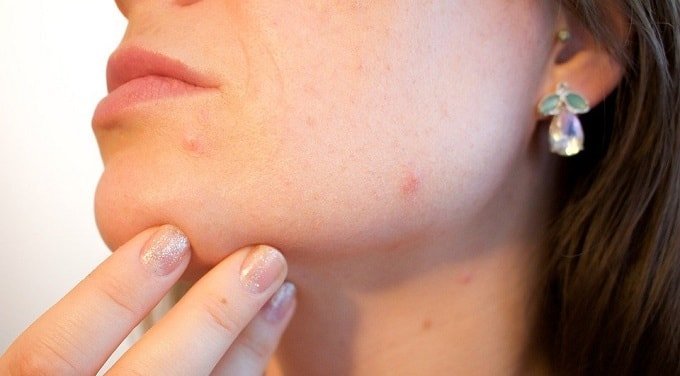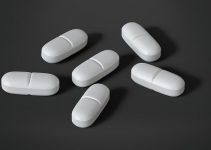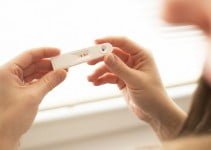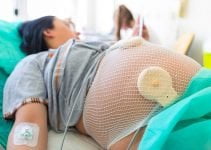
Unfortunately, one of the most annoying side effects of pregnancy is acne. Your hormones are all over the place throughout your pregnancy, which means that you may come face to face with your teenage acne issues once again.
The increase of hormones called androgens during pregnancy results the growth of glands in the skin leading to the increased production of sebum, a substance with oil- and wax-like texture. It is the excess of oil in the skin that causes breakouts and inflammation.
Acne can be annoying, but fortunately, you can use some of the over the counter treatments for acne while pregnant.
One of the best ways to treat acne whether you are pregnant or not is to use face washes that contain salicylic acid. This ingredient clears the skin debris and is also effective against P. acnes – a bacteria that promote acne.[1]
During pregnancy, your skin will begin to behave in ways that it has never done so before. You may notice that your skin is a lot drier than normal, or has more oil. You also may notice that you start to break out.
Throughout your pregnancy, androgens will be running throughout your bloodstream. These androgens can increase hair growth, unwanted dryness, and cause your skin to breakout. Fortunately, most of these afflictions are only temporary and will go away once you are no longer pregnant.
However, even if you know that your skin issues will go away with the birth of your child, it still doesn’t mean that you want to be riddled with acne throughout the nine months of your pregnancy.
Fortunately, if you are riddled with acne throughout your pregnancy then you can use face washes that contain no more than 2% of salicylic acid. Any higher percentage is considered unsafe during pregnancy.[2]
Even though face washes with 2% salicylic acid are safe, many women still choose to avoid the ingredient. If you feel like you want to avoid face washes and acne products with this potent anti-acne ingredient then you do have options.
Talk to your OB/GYN about safe topical antibiotics that you can use on your skin throughout your pregnancy. They may be able to prescribe a few different options to help clear your skin up. If not, then a dermatologist should be able to help out.
There are a variety of other facial and body lotions and creams that you should also avoid during pregnancy. The biggest culprit is any product with retinoids in it. These anti-aging products are especially harmful to pregnancies.
Retinoid and retinol
Retinoid and retinol containing products are used to treat acne, pigmentation issues, and as well as for their anti-aging benefits.
Retinoid is a derivative of vitamin A that speeds up the division of cells on your skin. This increases your skin’s renewal and prevents fine lines, wrinkles, and acne.
While retinoids may sound like a wonderful skincare item, they can actually harm the baby. Studies have shown that women who consume high doses of vitamin A and vitamin A derivatives throughout their pregnancy are putting their baby at risk for birth defects.[3]
Oral retinoids should definitely be avoided during pregnancy, but so should topical retinoids that can be found over the counter at any beauty or drug store.
Most of the studies that have linked vitamin A to birth defects have been looking at oral retinoids and oral vitamin A. However, OB/GYN’s are still resistant to let women use topical retinoids during pregnancy.
Just like retinoids, oral salicylic acid is not recommended during pregnancy. However, as stated above, you can use topical salicylic acid on your face in small doses. Just look for acne washes and products that contain 2% or less of the potent ingredient.
In general, the acne face washes that you find at the drug store or the beauty store should be safe during pregnancy. If you are worried about your skincare routine during pregnancy, just ask your OB/GYN. Most skincare products are safe, but there are a few that should be avoided.[4]
Acne during pregnancy can be annoying, but in the end you will have a healthy baby that you can dote over while your acne heals and skin goes back to normal. Once you have your baby and your hormones return to normal, then your skin should return to normal as well.
Post pregnancy, you are allowed to use most products on your face. If you aren’t breastfeeding then you are allowed to use every type of acne medication and face wash that you desire. If you are breastfeeding, then you should avoid oral salicylic acid, but topical salicylic acid is fine.
If you do suffer from hormonal acne during pregnancy, then try not to fuss over it too much.
The good news is that both pregnancy and postpartum acne is only a temporary situation. Acne will soon clear up when hormones have returned to normal levels.
There is nothing special involved with treating pregnancy acne; it’s just like routine facial care. However, there are certain products that should be avoided.
Pregnancy Skin Care Tips
Here are some general skin care tips to observe during pregnancy:
- Refrain from over-washing. The skin has natural moisture and there’s a risk of losing all that with too much washing. Oil production will increase with less moisture, making it more likely for breakouts to occur.
- Avoid using very hot water for washing. Hot water can cause skin to dry up. Like losing moisture, this increases breakout risks.
- Use a mild, soap-free cleanser. The water used should be cool or lukewarm in temperature. In addition, this regimen should be done in the morning, at night, and after sweating heavily.
- Do not scrub. Gentle exfoliation is the key. Use either hands or a soft washcloth to cleanse the skin. Use a circular motion then thoroughly wash and rinse.
- Do not rub. It’s much better to pat skin dry.
- Use a gentle, oil-free moisturizer. Apply this to prevent skin dryness.
Natural Remedies for Pregnancy Acne
Not all pregnant women will take to using commercial skin care products. Some even development reactions after using certain items.
So how can those who can’t use store-bought products treat acne? Start looking in the kitchen!
It’s not just beauty products bought online or in grocery stores that can cure acne. Sometimes, all it needs is to check the pantry for available supplies.
1. Apple cider vinegar
Dip a cotton ball into apple cider vinegar that is raw and unfiltered. Apply ball to face; doing this absorbs oil.
Create a natural toner by mixing one-part vinegar to three parts distilled water.
2. Baking soda
This baking ingredient will dry the oil on skin and help with healing. Here’s how to create a scrub:
- 1 tbsp baking soda
- 1 tbsp water
- a small container
Mix both ingredients until a paste has formed. Apply the mixture to every pimple on the face. Make sure it has dried completely before washing it off.
3. Citrus fruit
Alpha hydroxyl acids are found in acne products. In turn, those products dry up blackheads, whiteheads, and pimples resulting in the peeling of the skin’s top layer.
Citrus fruits such as limes and lemons contain alpha hydroxyl, making them a good choice to use as a natural exfoliant. Here’s how to make and use it:
- Squeeze the juice from the fruit
- Use a cotton ball to apply juice directly on spots
- Leave it until it dries completely
- Rinse with cool water
4. Coconut oil
Coconut oil can soothe the skin. Plus, it has antibacterial and antifungal properties too. Coconut oil is also easily absorbed by the skin. To use it, simply apply it before going to bed.
5. Honey
Honey doesn’t just have antibacterial and antiseptic properties; it can also soothe the skin. Here’s the process for using honey to treat acne:
- Use warm water to rinse the face
- Apply honey directly to affected areas
- Leave it on skin for about 20 to 30 minutes
- Use warm water to rinse
6. Oatmeal and cucumber
Both ingredients have soothing and cooling properties. Create a face mask using oatmeal and cucumber by blending the ingredients, putting it in the freezer, and applying to face for about 10 to 15 minutes.
Pregnancy-Safe Beauty Products
Disclaimer: This post might contain affiliate links. In case you buy through these links, we might receive a small commission, which helps us operate this website. Learn more here.
An alternative to DIY acne treatments is ready-to-use items. Here are some that are safe to use during pregnancy:
Drunk Elephant Pekee Bar
It’s important to wash the face with a mild product.
This bar of soap is PH-balanced and contains moisturizing ingredients such as honey and Marula to ensure gentle cleansing.
View more info and reviews on Amazon
Herbivore Botanicals Lapis Facial Oil
The product is blue thanks to blue yarrow and blue tansy. Using this reduces redness and inflammation; it also clarifies oily skin.
It can either be used as a spot treatment or throughout the T-zone for both acne treatment and prevention.
View more info and reviews on Amazon
Belli Fresh Start Pre-Treatment Scrub
Use this as an exfoliant to rid of dry skin on both face and body.
This helps cleansers and lotions work better to keep skin hydrated and smooth.
View more info and reviews on Amazon
Best Practices for Acne-Free Skin
Prevention is better than cure, they say. Acne may be a reality for some but there are ways its arrival can be curbed. Here are some tips:
- Drink lots of water. This should be a regular routine whether or not trying to avoid acne. It’s also ever more important to keep hydrated when spending lots of time outdoors.
Also, try to limit the consumption of carbonated beverages or caffeine if it’s difficult to avoid.
- Eat a nutritious diet. Take steps to include more fruits and vegetables in daily meals and snacks. Lean protein and healthy fats are also essential to a healthy diet.
Try as much to avoid refined sugars and processed foods, or at least limit the intake.
-
Change pillowcases, sheets, and towels often. Acne isn’t just caused by a change in hormones; it can also have something to do with materials that touch the body every day.
There’s a standard of one week use before sheets and pillowcases need to be changed. However, those who are prone to acne might need to do it more often.
Pillowcases are on the receiving end of bacteria, oil, and residue from beauty products. Since they can cause acne or irritation, it’s best to change pillowcases every day or flip them over to use for two days.
Bed sheets don’t need to be changed all that often. It can be changed once a week, however that also depends on thread count. The higher the count, the more it collects debris that can irritate the skin.
Bath towels need to be washed after being used two or three times. Doing so ensures that it isn’t the source of breakouts. It’s even better to air out the bathroom so towels can dry properly.
- Get some rest. Acne outbreaks can be triggered by stress and fatigue. Make sure there is sufficient time for rest and relaxation.
- Use oil-free makeup products. Make sure it is labeled “non-acnegenic” or “non-comedogenic.” Also, make sure to wash it all off before going to bed.
Experiencing acne during pregnancy is always a possibility, even more highly likely for those who are prone to breakouts during their menstrual period.
But this skin problem is only temporary until hormone levels revert back to normal. The solutions presented here can help treat pregnancy acne or keep them at bay.
References
- Allure:Here’s Exactly What Salicylic Acid Does to Your Skin. [Link]
- ncbi:Safety of skin care products during pregnancy. [Link]
- Retinoids and pregnancy: an update. [Link]
- ncbi:Are topical retinoids teratogenic? [Link]






